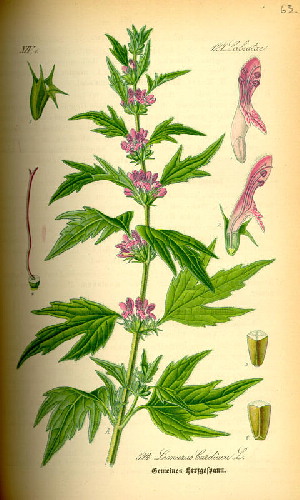rejoice with joy, you that have been in sorrow: that you may exult and be filled from the breasts of your consolation.
Category: loving in the war years
loving in the war years: day nineteen

what does grief look like
smell like
taste like
sound like?
loving in the war years: day eighteen
grief
it is something we are so rarely allowed to feel or to see or to even imagine
lasts more than 2 or 3 days.
i’ve studied war for over a decade now, and what shocks me, still, after all this time,
are the people. 50, 60, 70 years after vietnam, korea, ww2…they still cry when talking about loved ones lost. they still get choked up and can’t go on. they still hurt,
after all these years,
from the empty place that used to hold their loved one.
so different from the movies. so different from the television shows. that assure us. after one episode. after one glorious show down in court. after one big battle or one big yell or one big slow motion attack of the murderer…
it is better.
i was once yelled at by a person for mentioning being against a past war. i’ve been yelled at before over my anti-war stance, so i wasn’t surprised or even taken off guard. not until the tears started and the soft ‘you don’t know what it was like back then, you don’t have any idea what it was like, half of my friends never came home’ fell out of quivering lips over and over again. i didn’t have the heart to tell this person, this grieving person, still grieving after all those years, that their grief was why i was against war.
i just patted their back. and looked the other way. so they could pretend i didn’t see their tears.
what does grief look like?
what does it smell like?
taste like?
sound like?
is it different for everybody?
or is grief the one universal that draws us all together?
is the complete invisibilization of grief the only way the current world can continue to exist?
loving in the war years: day sixteen
a day of mothering: motherwort
i didn’t know anything about motherwort the first time i tried it. motherwort is not one of those flashy herbs that ‘they’ promise is the next cure all. don’t get me wrong, it’s an herb you can find in whole foods or your local health food store. but it’s never been one of those herbs that is supposed to cure cancer, relieve migraines or add 20 years to your life.
that’s probably because motherwort is most closely associated to women’s health. it does a lot of good things for things like menstrual cramping and PMS and helping with cramps after giving birth.
but even more so, it is a ‘comforting’ herb. one that helps a lot with heavy anxiety and whirling brain. but most of all, it helps with a broken heart. from herbalist susun weed:
In addition to its health-promoting effects on the uterus, motherwort heals the heart. It is, in fact, one of the world’s best heart tonics. Its name means “lion hearted” or “strong hearted.” Daily use helps new blood vessels grow to the heart. I call it “a bypass in a bottle.” (Yes, motherwort increases vascularization to the uterus as well, so daily–but not occasional–use is contra-indicated for women with endometriosis or fibroids.) A dose of 10-20 drops, taken several times a day, can lower blood pressure, improve heart action, and strengthen electrical activity in the heart.
New research showing that the heart has the same memory cells found in the brain may lead us to another use of motherwort: to help relieve heartache, especially from childhood injuries. Let motherwort ease your bad memories and open you to more joy. Try 5-10 drops before meditating and see what happens.
i am lucky enough to be in a place where motherwort grows prolifically. so i’ve seen motherwort out relaxing in the sun, been able to gather her fresh. and there’s a certain line of thinking in herbalism that some herbs sort of ‘look like’ or ‘mimic’ the area of the body it works best at healing or the action it takes on the body. you can definitely see this principle at work with motherwort. It is a lovely flower that you can’t mess with–there are prickers all over the flower area that hurt when you touch and get imbedded in your skin if you grab too hard. our boundaries are important, and if somebody grabs too hard, it’s ok to prick them till they leave you alone. they’ll know next time to treat you more respectfully and with more care.
a lesson we could all learn, one that we hopefully learn from motherwort as she helps us to heal from trauma and pain.
you can read more about motherwort here. and watch a video about motherwort here.
loving in the war years: day fifteen
Just for today, do not be angry
Just for today, do not worry
Just for today, be grateful
Just for today, work hard
Just for today, be kind to others.
loving in the war years: day thirteen
it happened again. and again. and again.
Skye Mockabee.
Korryn Gaines.
Joyce Quaweay.
women that this world desperately needed.
i light candles, i pray, for these women, for Sky, Korryn and Joyce. i pray for their loved ones, who saw and felt the violence inflicted on the women inflicted on themselves. it’s not enough. it’s not enough.
it’s not enough.
loving in the war years: day twelve
it’s easier for me to start the day breaking fast than it is for me to end it by starting a fast.
at the end of the day, there are endless things to worry about and finish up and try to remember for the next day. my brain whirls and wheezes like an old willy wonka machine as i repeat list after list of to-dos while trying to get dinner cooked and family time and maybe even some writing time squeezed in before the day ends.
i dont pause in the middle of this frenzy very well. i dont stop to admire how great it is to be alive or give thanks for the anxiety. most times i am hanging on by a thread, doing what i can to make it until the kids finally go to bed. and most time once that finally happens, i pull out the food in whatever form it takes that night, and eat. not with prayers or mindfulness. but with a strong desire to make the anxiety of the day go away. and some times as a reward for surviving another day of stress.
food as a type of self-medication.
these are the things that people who talk about mourning and love and mindfulness and meditation other esoteric out there sort of things like to ignore. that even if we start the day out with prayers and gratefulness, by the end of the night, we’re self-medicating in endless ways and falling into numb stupors until we pass out.
meditation and awareness exist at the same time as self-medicating and numbness. it is what life really looks like. life pulsates and shifts and it is that pulsating that we dont like dealing with very much. the cycles we don’t like to be reminded we are in and struggling to deal with. waking up to the love and tenderness of the world is a fantastic wonderful experience. waking up to the pain and anxiety and terror? not so much.
how do you embrace being alive when so much of it sucks so often?
i’ve tried very hard to be gentle with myself during this time. i’ve struggled with ‘end of the night frenzies’ for a very long time–maybe decades. it is where all the worry and anxiety i’ve managed to stuff all day finally comes out. so on a few nights during this mourning period, i have eaten some ice cream instead of fasting or i start my fasting time at 8 instead of right after dinner like i usually try to. when i am eating during a time i wanted to be fasting, i try to focus on the feeling i am struggling to deal with instead of the shame i usually like to beat myself up with.
boy it was a long day today, no wonder you feel so overwhelmed.
it sure was frustrating to spend that much time in the car while you had so much story you wanted to write!
BILLS! they ARE scary and terrifying no wonder you feel like you’re never going to be free!
and then i remind myself that i’m not alone. that there are people throughout the entire world who feel this late night frenzie. the anxiety building up into panic that you know you just dont have time to deal with right now.
and i remind myself that, thanks to the violence and terror that never seems to end, there are people who are trying to handle this frenzie without their loved ones.
it is here, at this point, that i finally feel myself soften and the panic ease. this is a terrible feeling, and i wouldn’t wish it on anybody in the world. as i eat one more bite of ice cream, i tell myself that it’s ok to need a coping strategy, because i’m a human being.
and then i take a deep breath, breathing in all the pain and anxiety of the late night frenzies–and slowly release the breath, breathing into the world safety, help, love, for all of those who are struggling as i am. love and tenderness can be in the worst of places, if you let it.
i take another breath
and release.
may you be safe. may you have all the help you need.
you are loved.
loving in the war years: day ten
I’ve long since given up on being Catholic. During the time I needed it, I would sneak into church and sit in the back pews during morning mass and it was so comforting and important to me to hear human voices rise up together in prayer and love and to know that my voice was a part of something. I taught myself the different prayers, said the rosary at night, alone. But taking comfort the whole time. Knowing that out there, somewhere, there were others praying the rosary too. And so we were together.
As much as I needed Catholicism then, I eventually walked away from it. And found my home in Buddhism, where I go to temple rather than church and I am happy with that.
But when times are tough or complicated, I invariably find myself mumbling those Catholic prayers under my breath, most often the Our Father or Hail Mary.
These days, I’ve been mostly saying the Hail Mary.
Hail Mary, full of grace, the Lord is with thee. Blessed are you amongst women, blessed is the fruit of thy womb, Jesus. Holy Mary, Mother of God, pray for us sinners now and in the hour of our death, Amen.
All those years ago, when I regularly attended church, I said this prayer without thinking too deeply about the words. I said them, I understood them. But I understood them through the eyes of the male priests or the babysitter with the Virgin on her wall–a desire to be submissive. A desire to be more like this holiest of submissive women. The woman who was so holy, God chose her to be impregnate. A vessel. For God.
But I’m older now and I have learned so much since then.
Like: the definition of ‘virgin’: a free woman, one not betrothed, not bound to, not possessed by any man. It meant a female who is sexually and hence socially her own person.
Like: the definition of ‘compassion’: to suffer with.
Like: Mary was an unmarried teenager when she had Jesus, and a woman when he died. She was with him when he died.
Like: Joseph was the man Mary was set to marry when she turned up pregnant, and had to be visited by an angel before he was convinced to marry her despite her pregnancy. He was not with Jesus when he died.
I found out all these things over the course of years. And they all sit with me now, as I go through ritualized mourning. And they help.
Because the thing is, knowing that Mary really actually was a virgin in the sense she was unbound to any man and thus capable of making her own choices, makes me think that Mary was less of the ‘vessel’ so many have made her out to be and much more of a real human being who made an active choice with God to create something beautiful and world changing. She didn’t have to consider the needs of a ‘headship,’ she didn’t need to worry about other children or family honor. She was free. And she made the decision to trust herself and her faith and ‘go with God.’
Thinking about Mary’s free choice as an older woman, and that she chose to follow Jesus through to his death, says that she wasn’t just a vessel used by God–but that she was a real human being, one who made rational decisions, had an active faith, and who could love. Staying by the side of a man struggling through his conflicted relationship with God, the terrible violence inflicted upon him, and then his death are not easy things to bear. Joseph was not with Jesus or his group during this time. Joseph was not at the cross when Jesus died. Scholars speculate Joseph was dead–I speculate that men have left their families throughout all of history over much smaller things than having a child born of God or seeing a child murdered.
Men see the devotion of women and mothers and assume it is just ‘normal.’ That it is biological. That there’s something biologically wrong with a woman when she’s not a complete martyr that sacrifices everything from food to safety to keep her child happy and well. Some of this is sort of true, those who birth get the hormones that are supposed to bond mother to child. But. There is no hormone strong enough to overturn a human being’s decision once they’ve made up their own mind. And barring societal threats (like marriage or prison), when women are free and supported and show devotion to a child or family, it’s because they’ve made the choice to. Women are not mindless vessels. Men insist that devotion must be biological because they sense the choice underneath. The choice they can’t control. Insisting that devotion be biological is just a way of manipulating the choice they can’t control.
Women are not vessels.
And neither was Mary. She was an active participant in her own life. And her life included seeing her own son murdered (and be reborn, if you believe). This is not a weak mindless woman or the simpering snowflake Mary is often presented as. Mary stayed even during the worst of times. She made the choice to suffer with Jesus when she could’ve walked away, like Joseph and many others did. I imagine her hands to be calloused, her handshake to be firm. I imagine Mary had a direct gaze, firm but not unkind. But a gaze that intimidated many anyway. I imagine that Mary knew before Jesus did that he would be betrayed. Intelligent. Fierce. A fighter.
It was Mary who said I can’t carry the burden you carry for you, but I can help you bear it. Compassion. Not because she was a martyr, but because she knew her shoulders were broad and strong enough to help. Solidarity, rather than martyr.
Which is why even tho I am now a Buddhist (or perhaps because I am Buddhist, we are very big on compassion), I now say the Hail Mary with a whole new sense of awe, a whole new sense of wonder. And a whole new sense of comfort.
It’s not just that my voice rises in prayer alongside others at Mass or with others across the world who are saying their Rosary. It’s that those who pray are suffering, the same as I am. And we are together praying to a woman who is willing to suffer with us. Who is willing to bear the burden of suffering with us. We suffer together and pray for relief from suffering. Together.
We are not alone.
Holy Mary mother of God,
Help us to bear this crap now, and when the shit hits the fan, too.
Because we know that you made the choice. To stay with the suffering until they are able to rise again.
Thank you.
It’s not everything. Saying Hail Marys two times or 200 doesn’t make the pain just suddenly go away. But it does help. There are others out there that suffer like you do, like I do. Who have no place else to turn, who don’t know what to do, who are facing the worst moments of their lives, the scariest, the most unknowing. And they are raising their voices too. In prayer. That you and I–all of us sinners together–will find relief.
Compassion.
Oh, the utter holiness of humanity.
This sacred world. Where love does exist.
Amen.







